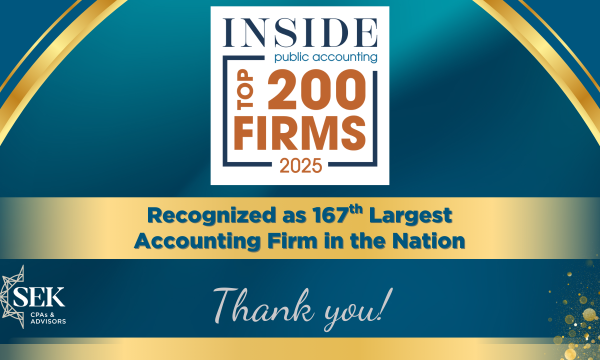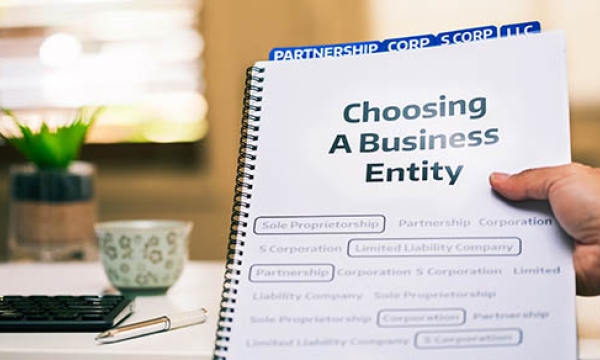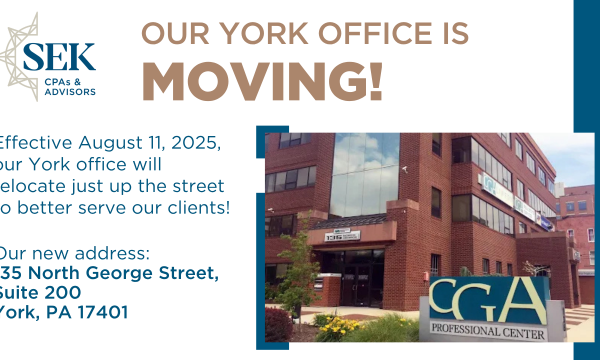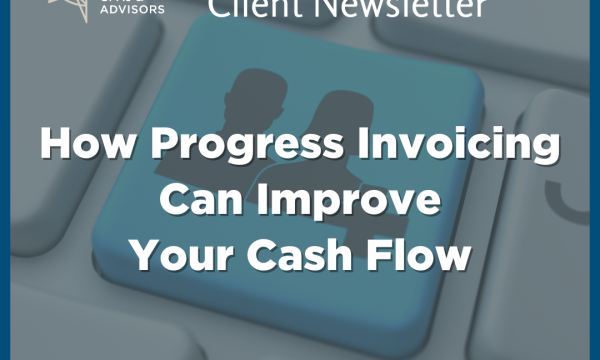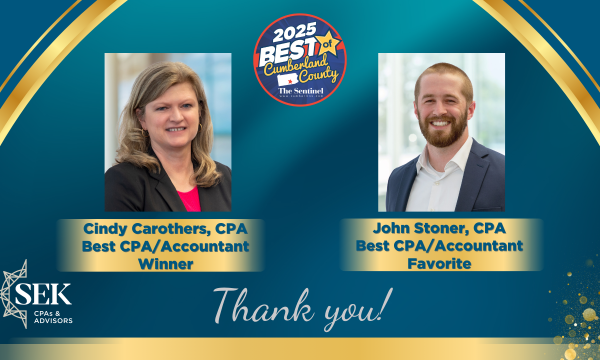SEK Named as Leading CPA Firm in the Nation
SEK, CPAs & Advisors has been named 167th in INSIDE Public Accounting’s 2025 annual rankings of the largest accounting firms in the nation, the IPA 200.
Nonprofits: Grant proposals in the age of AI
With fewer federal grants available to not-for-profit organizations, the competition to qualify for funding — from all sources, including foundations — has become more intense.
A tax guide to choosing the right business entity
One of the most critical decisions entrepreneurs make when starting or restructuring a business is choosing the right entity type.
SEK relocates York office to accommodate continued growth
We are pleased to announce the relocation of our York, PA office, effective August 11, 2025. The office relocated from its previous address at 16 North George Street to 135 North George Street, Suite 200, located within the CGA Professional Center in downtown York.
Pinched nonprofits may want to free up board-designated assets
In general, nonprofits can’t use restricted assets for purposes other than those specified by the original donor. Board-designated assets (or board-designated funds) are another matter.
How to review a resume for better hiring
Hiring the right person begins with reviewing resumes effectively. This can feel a bit daunting, but with a little structure and the right approach, you can quickly identity which applicants are worth a closer look.
Should a living trust be part of your estate plan?
As its name suggests, a living trust (also known as a revocable trust) is in effect while you’re alive. It’s a legal entity into which you title assets to be managed during your lifetime and after your death.
How progress invoicing can improve your cash flow
These are uncertain economic times. Bring in money faster by using progress invoicing.
The new law includes a game-changer for business payment reporting
The One, Big Beautiful Bill Act (OBBBA) contains a major overhaul to an outdated IRS requirement. Beginning with payments made in 2026, the new law raises the threshold for information reporting on certain business payments from $600 to $2,000.
Cindy Carothers & John Stoner recognized in Best of Cumberland County Awards
Two Managers from SEK, CPAs & Advisors have been honored in The Sentinel’s 2025 Best of Cumberland County Awards in the Best CPA/Accountant category.
